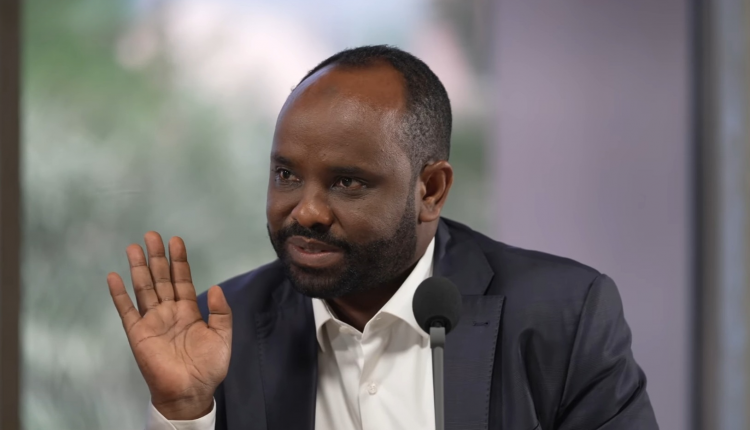GERD Built on Sovereignty, Not Suspicion, Ethiopian Researcher Says
Addis Ababa, August 7, 2025 (FMC) — Ethiopian writer and researcher Musa Shehu has reaffirmed that the Grand Ethiopian Renaissance Dam (GERD) is a sovereign development initiative driven by Ethiopia’s longstanding right to utilize the Nile waters within its territory — not a project designed to provoke or threaten downstream countries.
Speaking during a live debate on Al Jazeera, Shehu traced the origins of the GERD to early 20th-century efforts by Ethiopia to harness the potential of the Nile for national development. “This is not a sudden ambition,” he said, emphasizing that the concept gradually evolved into what is now a flagship national project.
Shehu expressed surprise at widespread narratives in parts of the Egyptian media suggesting that Ethiopia aims to deprive Egypt of water. “Such claims are not understood in Ethiopia,” he stated. “The river originates on our land, and we have the right to benefit from it — not to harm Egypt or Sudan, but to meet our own development needs.”
He also pointed to the historical and religious bonds between the Ethiopian and Egyptian peoples, noting that Ethiopian Muslims hold Al-Azhar Al-Sharif in high regard, while Ethiopian Christians revere the Coptic Church in Egypt as a vital spiritual and historical institution. “There is mutual respect, not hostility,” he said.
Addressing the roots of the long-standing dispute between Addis Ababa and Cairo, Shehu highlighted the 1929 and 1959 water-sharing agreements between Egypt and Sudan, which excluded Ethiopia despite its position as the main upstream source of the Nile. He explained that Egypt’s continued insistence on receiving its historical quota of 55.5 billion cubic meters annually has remained the primary obstacle to resolving the issue after 14 years of negotiations.
“Egypt says it does not oppose the dam or Ethiopia’s use of the water,” Shehu said. “But it demands that the same volume continues to flow every year, and that is the heart of the deadlock.”
He rejected claims that Ethiopia is acting out of malice or conspiracy, emphasizing that the GERD is fundamentally an energy project. “We have no intention of cutting off water or causing harm. Our purpose is electricity generation — and we remain one of the least electrified countries in the world.”
Shehu noted that the GERD has not caused any measurable harm to downstream nations so far, and that Egypt has not issued any official statement citing direct damage. “The water continues to flow. The dam is not designed to block or divert the river,” he said. He added that Prime Minister Abiy Ahmed’s invitation to Egypt and Sudan to attend the inauguration of the dam was a gesture of transparency and goodwill.
He criticized what he described as media sensationalism in Egypt, especially during the dam’s filling phases, arguing that such portrayals have negatively shaped public opinion. He also expressed concern over official Egyptian statements labeling the dam as “illegitimate,” saying such rhetoric undermines trust and progress.
Shehu stressed that Ethiopia is not opposed to signing an agreement, but rejects the insistence on historical water allocations that it views as unfair. He also opposed demands for downstream countries to take part in managing the dam. “This is a question of national sovereignty,” he said.
He further noted that the UN Security Council has discussed the GERD issue roughly 13 times without issuing any resolution against Ethiopia — a sign, he said, that the international community does not see the dam as a threat to regional peace or stability.
In conclusion, Shehu reaffirmed Ethiopia’s call for a fair and equitable agreement that respects the rights and development needs of all parties. “The solution lies in dialogue and understanding,” he said, expressing hope that Ethiopia and Egypt will ultimately work together and that the GERD will come to symbolize regional cooperation and shared progress.

